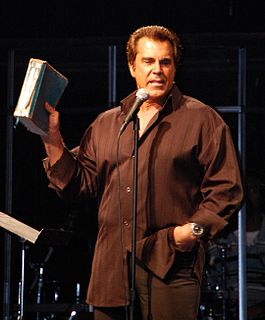A Quote by Jessie Sampter
God gave a law ... called justice. But they have made a law for themselves that is terrible and intricate, and they cannot escape it, for the evil will and the good will are caught alike in its meshes, and it is darkness to the eyes that see and a stumbling block to the feet that run. This law is called necessity.
Related Quotes
Law is justice. And it is under the law of justice - under the reign of right; under the influence of liberty, safety, stability, and responsibility - that every person will attain his real worth and the true dignity of his being. It is only under this law of justice that mankind will achieve - slowly, no doubt, but certainly - God's design for the orderly and peaceful progress of humanity.
The civil magistrate cannot function without some ethical guidance, without some standard of good and evil. If that standard is not to be the revealed law of God (which, we must note, was addressed specifically to perennial problems in political morality), then what will it be? In some form or expression it will have to be the law of man (or men) — the standard of self-law or autonomy.
When you say there's too much evil in this world you assume there's good. When you assume there's good, you assume there's such a thing as a moral law on the basis of which to differentiate between good and evil. But if you assume a moral law, you must posit a moral Law Giver, but that's Who you're trying to disprove and not prove. Because if there's no moral Law Giver, there's no moral law. If there's no moral law, there's no good. If there's no good, there's no evil. What is your question?
Cleverly assorted scraps of spurious science are inculcated upon the children to prove necessity of law; obedience to the law is made a religion; moral goodness and the law of the masters are fused into one and the same divinity. The historical hero of the schoolroom is the man who obeys the law, and defends it against rebels.
God's righteousness and His unchangeable law make Christianity a stumbling block for many. Organizations and individuals carry a political and moral agenda that aims to remove all obstacles to their sin. Their goal is to 'break God's bands asunder and cast away His cords.' They counsel together to rid themselves of the law of God; anyone who preaches the gospel or stands for righteousness stands in the way of their agenda.
I'm not called Jude Law, I have three names; I'm called 'Hunk Jude Law' or 'Heartthrob Jude Law'. In England anyway, that's my full name. That's the cheap language that's thrown around, that sums you up in one little bracket. It doesn't look at your life. But if one looks beyond, there is actually a little bit more.







































